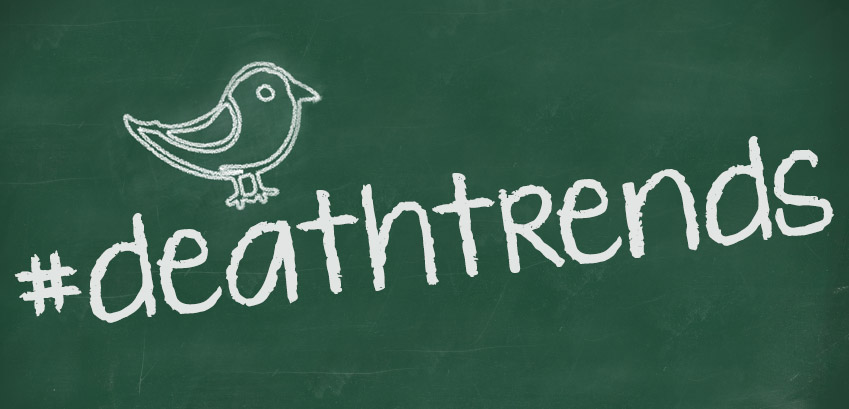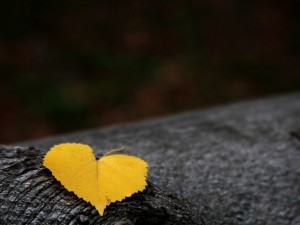
My childhood friend Christine (and her long time Bo’—Joe) came to my son’s LaCrosse game a few weeks ago. During the game, I received an email from Dr. Norma Bowe (muse for the book “The Death Class“)—it was being optioned for a TV drama series (what?!) I shared the news with my friends and without pause, Joe said:
“I’m not surprised. Death is really trending right now.”
Huh? The look on my face must’ve screamed amusement and curiosity.
Coming from me, that wouldn’t have made anyone blink, but from Joe it begged for an explanation. Joe is Joe Morton and acting in TV dramas is just one of the many talents listed on his rich resume (while everyone was waiting to see if Scandal’s Rowan Pope survived the wound Olivia’s mother inflicted on the former head of B613, he was talking about #deathtrends at a HS LaCrosse game in NJ).
He went on to explain how much attention Hollywood is giving the death topic—the popularity of TV dramas like Resurrection, The Walking Dead, Dexter, and TNT’s up and coming Proof (where you can get yourself some more Papa Pope) shows mainstream audiences are ready. The conversation lasted only a few minutes, but it hit me with such clarity and inspired me to write this.
Other #deathtrends
The New York Times is posting an article a week about death and dying. Theresa Caputo has rock star status (love her, BTW) – with her appearances on Ellen and Watch What Happens Live with my dream Bo’ Andy Cohen.
How many of us posted our photos with Mr. Awesome or read the People article about the sandbox added to a young boys grave so his brother could play with him? We are thinking differently about death and looking for ways to honor the dead that are as unique as the individual they represent.
Mark Harris (environmental columnist and author of Grave Matters) recently noted in his blog, “When I first began investigating the emerging green burial movement back in the early 2000s, you could just about survey this country’s natural cemetery landscape in a single sweep…Today, my very rough tally puts the number of natural cemeteries in the United States near 150, all scattered across nearly 40 states. And counting.” Brilliant.
And what about Facebook? At least once a week I see a post from my circle of friends about the passing of someone they love. I’m glad they finally changed to emoticons – it felt weird hitting the “Like” button on a death post.
The timing is right for #deathtrends.
The baby boomers and gen Y-ers account for about half of the total US population. They’ve been known to challenge the status quo and embrace individuality. As they grieve, they see the voids in the funeral space and are taking steps to initiate change so I’m not surprised to see this happening. I’m excited to acknowledge it.
I’ve been watching the funeral industry for years as an outsider looking in. I’ve partnered with experts and authors in all the nooks and crannies of the industry for Heart2Soul and the groundswell is finally boiling over. To have Hollywood show interest in a death class is great news for #deathtrends.
Why is this so important to me?
2.5 million people die every year…The families left behind need to make decisions they’re not prepared to make…Being educated consumers is important – and so is understanding the wishes of the dying…these are the trends we are used to hearing and they are very important. But I think we’re missing a different POV of why it’s so important to talk about death …
However we choose to honor the dead—while it’s about the dead guy, at the end of the day it’s for the people left behind. (Pause or re-read that—it’s important). The people left behind are grieving and our discomfort adds to their pain.
How? When we’re not comfortable talking about death when there isn’t a body around, how can we possibly be comfortable talking about it when there is one? We stop calling because we don’t know what to say. We change the subject when they mention their loved ones name. We leave them feeling isolated and apologetic for their grief. We are forcing them to protect us from our discomfort. How f-ed up is that?
Dr. Bowe doesn’t need Hollywood to validate the work she’s doing (though, I’m not gonna lie, it is very cool). Her work is validated in the faces of the kids that fight for a spot in her class every semester. One by one, her grass-roots effort has been teaching a generation how to have conversations about death and in turn, challenging them to have conversations with their family and friends. She touches everyone connected to the kids in her class (remember the “and they tell 2 friends” commercial?).
Hollywood normalizes even the most obscure (and sometimes absurd) topics – however inconvenient, we believe people can live with Zombies as their neighbors, feel compassion and root for a serial killer and see the practicality in Polygamy (sometimes I wish I had 3 other woman helping me with my family responsibilities).
People having conversations about death and dying is not absurd. Difficult? Yes, but not obscure or absurd. The way I see it, when Hollywood steps in, it provides a large-scale platform and helps us spread the word on a topic some us of already see clearly. So, while the acknowledgement in Hollywood isn’t needed for validation, imagine how many people it will touch and the conversations it will start? And what better way to tell the story than through Norma’s eyes?




